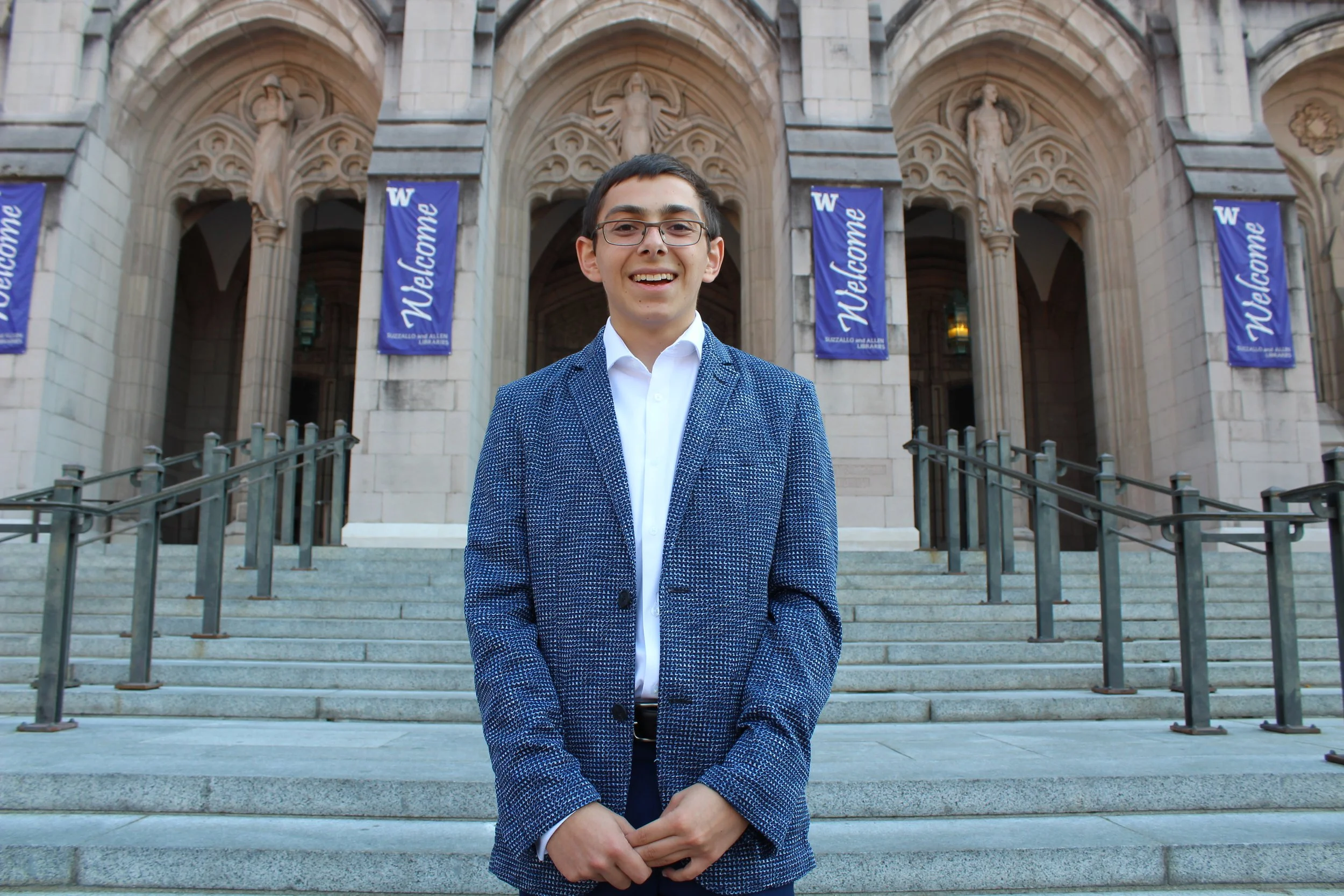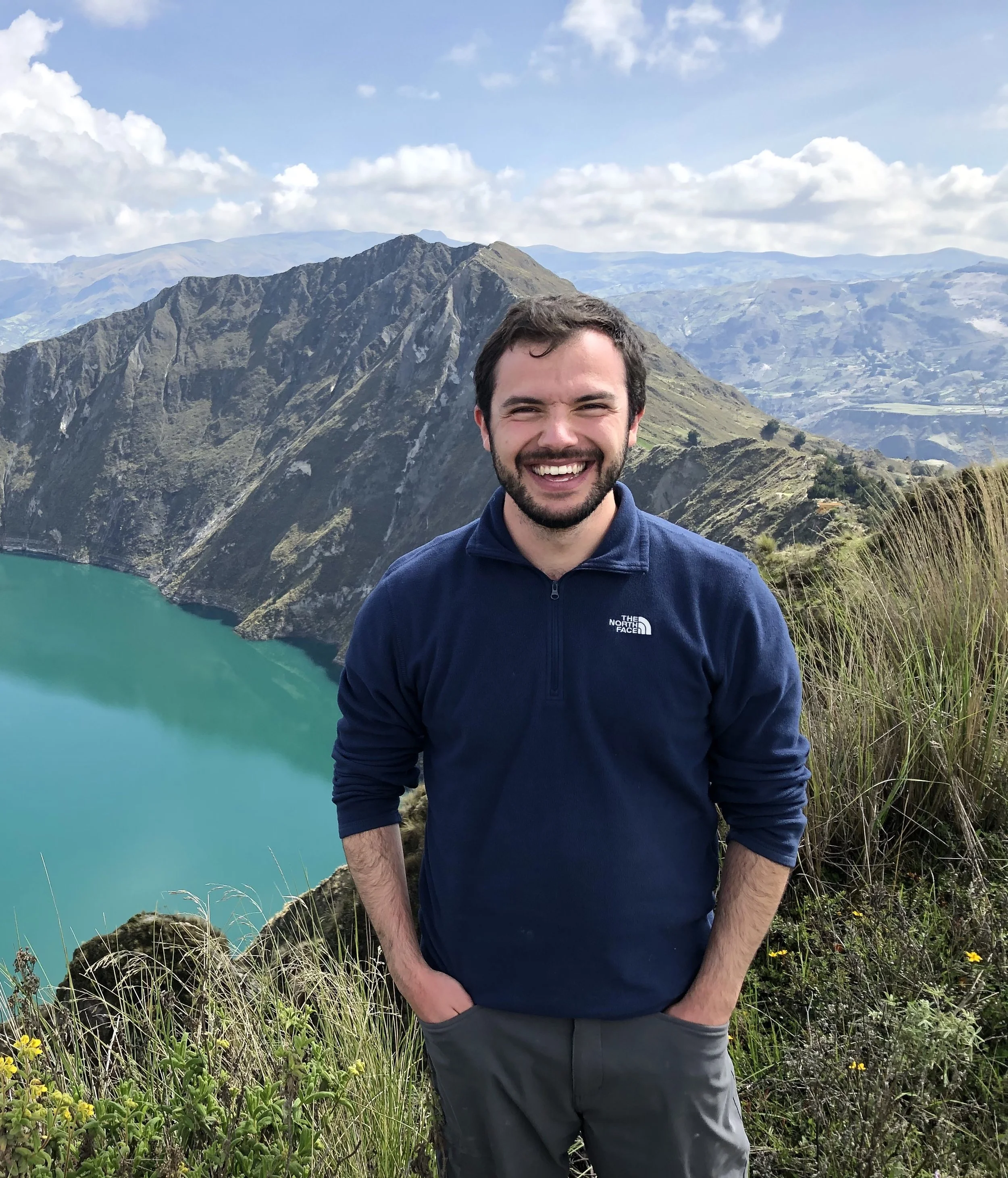Interns/Fellows/Mentors
(IFM Program)
Our internship, fellowship, and mentorship program thrives on collaboration across fields and experiences. The program welcomes students, academics, and professionals into a laboratory setting that generates innovation. Members of our IFM program join forces to share expertise, ideas, connections, and workspace. We strategize together and we build together. A key component of this setting is the interdisciplinary emphasis; we intentionally cultivate diverse approaches in order to solve electoral problems. Backgrounds of participants may include data science, mechanical engineering, computer science, philosophy, ecology, mathematics, sociology, political science, public policy, and communications.
Summer 2023 Interns & Fellows
-
Eric is a recent graduate from Washington State University with a Bachelor of Science in Mathematics and a Bachelor of Arts in Philosophy. He is interested in the intersection of mathematical optimization, philosophical value theory, and the design and control of purposeful systems. During his undergraduate, he conducted research on the emergent properties of voting networks in the context of proxy-voting systems with Dr. Daryl DeFord. Outside of academia, he has interned as a software engineer at Meta, Amazon, and Booz Allen Hamilton working on problems related to optimization and prediction. He has a passion for exploring and optimizing the foundations of democracy and wants to work on democracy reform in the future.
-
Ethan is a student in the Masters of Computational Applied Public Policy program at the University of Chicago. Previously, he was the Data & Strategy Adviser for the Alliance of Liberals and Democrats in Europe, working out of Brussels, Belgium. Ethan enjoys cycling, watching sports, and trivia. He speaks English, some French, and he's working on his Hindi. After graduating from his master's degree, he hopes to be a geospatial data scientist.
-
Hayden is a recent graduate from the University of Washington with a Bachelor of Arts in Political Science and Economics. He is passionate about voting rights, improving representation, and increasing voter participation. Hayden is seeking a career in election law to reduce barriers to voting and help ensure that everyone's vote counts. Various leadership experiences have taught him the importance of data-driven decision making and a constraints-based mindset, which both inform his leadership style. As a leader and future policymaker, he believes that contemporary decision-making must be informed by history.
-
Grace studies sociology and media at Stanford University. Before joining EIL, she spent the year tracking election integrity at the Freeman Spogli Institute and completing a research fellowship through the Stanford Women’s Community Center. Grace is passionate about racial justice, money in politics, and ethical journalism. She is excited to extend her commitments and skills to advocate fair political representation and strengthen democratic principles in her time at EIL.
-
Noah is a Master in Public Affairs student at Princeton University, concentrating in domestic policy and democracy reform. He has worked on political campaigns across the country, led voter registration and outreach initiatives, and most recently served as a chief of staff for Virginia state legislator Delegate Dan Helmer before graduate school. In addition to his passion for ensuring we maintain a functioning democracy, he is a walking and sweet potato enthusiast.
-
mahshadh@arizona.edu
Mahshad is a Computer Science student at the University of Arizona. She spent a year working with Professor Proebsting conducting research on alternative ranked choice voting methods and their differences. She is interested in different algorithmic approaches to implement RCV and the simulation of alternative voting schemes. She has a passion for mathematics and theoretical computer science. In addition to Python, Java, and C++, she speaks Persian, English, and German. She also enjoys hiking and traveling.
Our mentors regularly host in-lab lectures to address critical issues in our democracy. Holding true to our philosophy of intellectual diversity, the tools in their presentations have ranged from ballots to bees to bifurcation theory. Each approach has proved immensely valuable in the science of electoral reform.
The following are summaries of presentations and work session topics during our 2023 summer internship and fellowship program:
2023 Summer Mentors
-
Jack Santucci joined us in the Lab to discuss the adoption and repeal of electoral reforms. Santucci clarified the scope of electoral reform, which he believes to encompass district magnitude, assembly size, ballot format, allocation rule, or nominations. This lecture also dealt with vote leakage and discussed both descriptive and substantive representation.
-
Gene Mazo presented the importance of ballots in the electoral process. Decisions made about the layout of the ballot or the speech included within the document are consequential in election outcomes. Mazo exemplified various ballot devices, like county lines and straight tickets, to demonstrate their influence.
-
Simon Levin introduced ecological principles into our study of electoral systems. In line with EIL’s multidisciplinary approach to understanding elections, Levin called upon natural models for cooperative dynamics and distributional resource depletion. His presentation utilized agent-based collective decision-making models and prosocial simulations, as well as sociological principles of norms and intergroup conflict. Levin further considered the psychological study of collective intelligence as stabilized by local interactions, and opened discussion to nonlinear feedback dynamics of asymmetric polarization.
-
Keena Lipsitz examined parties and polarization in contemporary American democracy. Lipsitz asserted that most major political events are driven by coalition formation instead of ideology. Lipsitz presented the concept of “low information rationality,” which motivates shortcuts in political decision-making. Lipsitz explained that most voters do not hold fixed opinions on hard political issues, but rather rely on available considerations such as recency and issue salience. Lipsitz further discussed incumbency and identification bias, and underlined party identification as a key shortcut to determine one’s vote. Lipsitz considered political parties’ role in voter satisfaction and polarization, especially via discussion of reflexive partisanship, the decline of cross-cutting issue cleavages, media fragmentation, geo sorting, and party leadership. Lipsitz additionally explored party discipline, decline in moderates, and punishment for party defection.
-
Deb Otis discussed systemic grading models, and the complications that arise from differing community priorities. She shared a reform philosophy that ranked-choice voting methods pave the way for more substantial reforms. She guided our attention toward strategic voting, and its potential threat to methods like approval voting. Overall, she developed our awareness of incentives to vote sincerely, and emphasized tactical performance metrics in order to identify vulnerabilities in proposed voting reforms. Otis additionally discussed timescales for agent-modeling and the measurement of negative campaign efforts.
-
Naomi Leonard explored a wide range of interest in multi-agent systems, especially the science behind consensus and dissensus. She exemplified tunably fast and flexible collective behavior with processes like honey bee swarm nest-site selection. She presented questions of threshold flexibility, the measurement of tunability, and the breaking points of indecision (or gridlock). Leonard’s presentation highlighted the bifurcation theory, as based on dynamical systems theory. This theory examines the change in number/configuration/stability of equilibria as parameters vary across a singular (bifurcation) point. This theory is utilized to magnify critical transitions, and the bifurcation value is an assessment tool for polarization. Leonard additionally measured opinion dynamics as a model of continuous-time recurrent neural networks. This presentation progressed our scientific understanding of delaying, precipitating, containing, and shaping decision-making.







